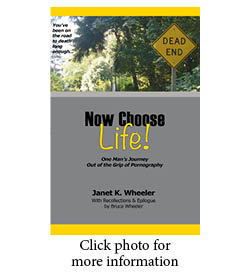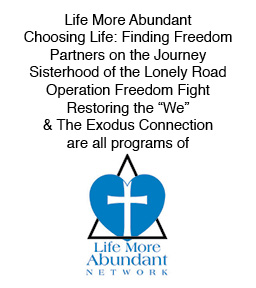In addition to working with Life More Abundant Network, Bruce has been a chemical dependency counselor for many years. He often says that one of the main signs that tell him an addict is getting healthier, is that they stop blaming.
Blaming, along with denial, lying, minimizing, rationalizing and anger are usually evident in any kind of addiction. These “tools” are ways the brain tries to protect the addiction that it has come to believe is essential in coping with life and dealing with past disappointments and pain.
Blaming (and most of the others) divert the attention away from us and our behaviors. If we are able to convince ourselves that our attitudes and actions are the fault of someone else, we are “off the hook”. We may tell ourselves that “nobody can expect anything different from us because, after all, we’re just the victim. We don’t have to look deep inside of ourselves to discover why we do the things we don’t want to do . . . because “they” were the ones that caused the problem.” We think somehow the blaming will help us avoid the consequences of our behavior. But it isn’t true and it keeps us stuck.
It reminds me of a story Bruce tells about his son when he was barely more than a toddler. If I’m remember it right, he had colored on the wall. Knowing full well whose “artwork” it was, his parents called him over and his mother asked him “who did this?” A look of panic came over their young son’s face. He was quiet for a few minutes, most likely contemplating the consequences that admitting it would bring, and then pointed up at his dad and announced “He did it.”
It is only when we can begin to realize that WE chose to handle our stress, pain, boredom, or whatever the underlying issue is, in an unhealthy way that we can begin to really move toward freedom and health. WE have to acknowledge that nobody drug us over the computer or to the adult bookstore and said . . . “you have to do porn, now.” WE chose to respond in that way. WE reacted to a bad situation with a bad solution. WE didn’t want to deal with the REAL issues. WE chose to numb out. WE didn’t want to “get in trouble.” WE didn’t want someone to think badly about us. WE didn’t want to have to admit, even to ourselves, the extent of our problem. Doing anything less, though, only delays our recovery.
No matter what we try to tell ourselves, WE ARE in the driver’s seat. WE are making choices.
“Search me, God and know my heart…”—Psalm 139:23


Leave A Response